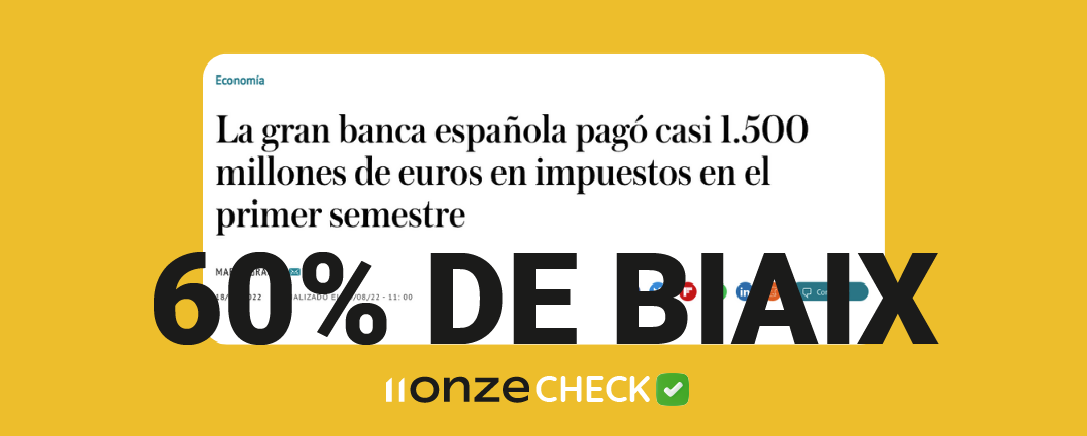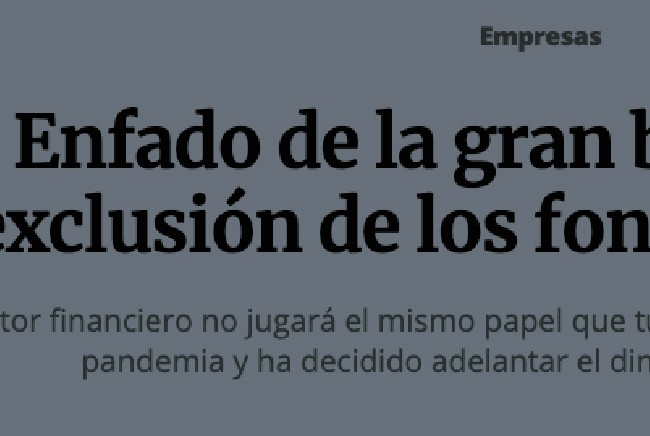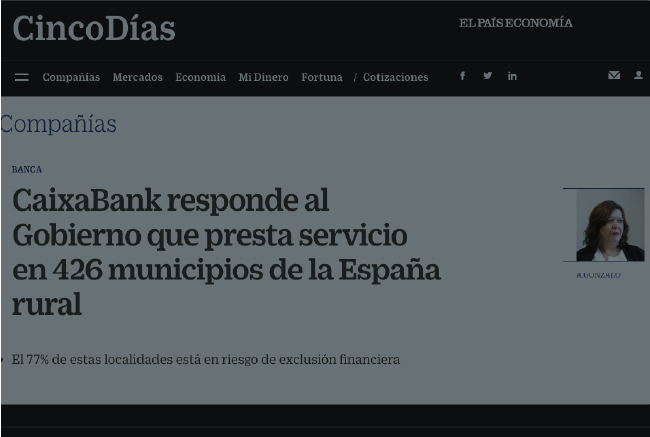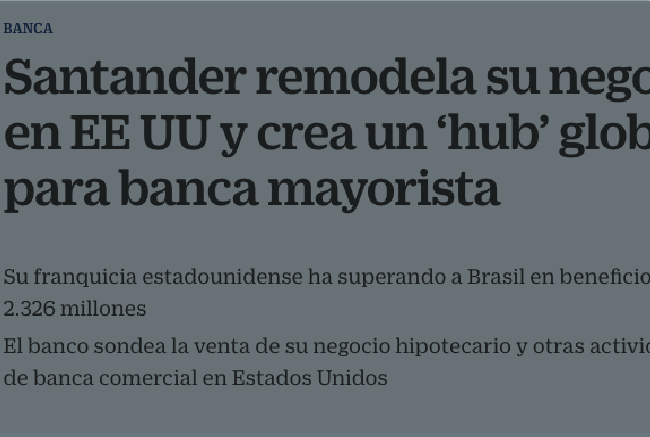

11Onze Check: Kissing up to the one who pays?
The bill on the new banking tax, which aims to put a levy on the extraordinary profits of financial institutions, will be debated next week in the plenary session of Congress. Predictably, the banking sector has been up in arms and has even threatened to challenge in court a tax it considers unfair. The media echo the banking sector’s complaints, but do they show the same interest in explaining the other side of the coin? We focus on a news item from the digital newspaper ‘El Independiente‘ to contrast this information with the Bias Method.
The new extraordinary tax on large banks announced by the Spanish Prime Minister, Pedro Sánchez, will apply a 4.8% tax on their commissions and net interest for two years to banks that earn more than 800 million euros in the Spanish state.
The banking sector’s outright rejection of the new tax is nothing new. Since January 2018, when Pedro Sánchez, as secretary general of the PSOE and leader of the opposition, proposed that a surcharge would have to be imposed on bank profits to rescue part of the country’s pensions, the refusal of the big banks to accept a new tax has been widely covered by the country’s mainstream media.
Disseminating this information and echoing the banks’ complaints about any grievances that the sector considers relevant is perfectly legitimate and part of the media’s job. Even so, contrasting and contextualising information, as well as giving a voice to other actors who do not share the banking sector’s vision, is essential if the public interest, not just that of the banking sector, is to be represented by a press that presumes to be independent.
At 11Onze Check, we have focused on analysing the article published by the online newspaper “El Independiente” and have come to the conclusion that it is 60% biased. Even so, we could have chosen any of the many other articles published by most of the state media, with a very similar result.
SOURCES
Although the article includes a link from the same newspaper, echoing the prime minister’s announcement, it limits itself to giving a voice to the banks: CaixaBank, Banco Santander and Banco Sabadell without contrasting the information.
ENDOGAMY
There is no representative of the government, nor of parties in favour of this new law proposal, nor any alternative voice to the vision of traditional banking. We only read the opinion of “the representatives of each of the banks” who “have shown their disagreement with the government’s proposal, assuring that they already pay a lot of taxes”.
INTENTION
The headline “Large Spanish banks paid almost 1.5 billion euros in taxes in the first half of the year” is already a declaration of intent that is confirmed throughout the article. A story that focuses on the taxes paid by the big banks, but makes no mention of their large profits.
CONTEXT
The information is not contextualised beyond the announcement of the new tax by the Spanish government. It is not explained that this initiative stems from a recommendation by the International Monetary Fund (IMF), which, after the bank bailout, suggested that states establish taxes on banks so that the financial sector could make “a fair and substantial contribution” to compensate for the aid received. Nor is it mentioned that countries such as Germany, the UK and Australia have implemented similar taxes and mechanisms.
FOG
The reporting is foggy because far from being an informative article, it merely states that bankers are angry and repeats their statements without any counterpart or journalistic analysis to challenge this narrative.
VOCATION OF SERVICE
The unwillingness to serve the public interest is evident throughout the article, not only in what is said but also in what is not said. Bearing in mind that Spain is the European country where the banking crisis has been most costly for citizens, with 48 billion euros written off as lost and never to be returned to the people, it would be good for the article to explain that this is precisely why the Spanish banking sector is “always in the spotlight”.
To know more about the Bias Method we have used to compare this information, you will find it here. If you would like to send us economic information to verify, you can do so by writing to [email protected].
Leave a Reply
You must be logged in to post a comment.






gràcies
Genial article👌
Moltes gràcies, Jordi!
Molt bon article.
Gràcies!!!!
Gràcies, Manel!
Aquests articles que publiqueu a 11Onze Check sobre la banca fan pujar la pressió arterial. Haurien d’ arribar arreu.
Els mitjans espanyols i catalans només informen de les queixes dels usuaris relacionades amb el mal servei al client tot fent cua a la porta de les sucursals bancàries, i com a molt sobre l’augment de les comissions, passant-hi però, de puntetes.
Moltes gràcies pel teu suggeriment, Mercè! Sempre intentem donar informació actualitzada i contrastada a la nostra comunitat, a La Plaça, fent-ne tota la difusió possible, és la nostra intenció que arribi arreu!